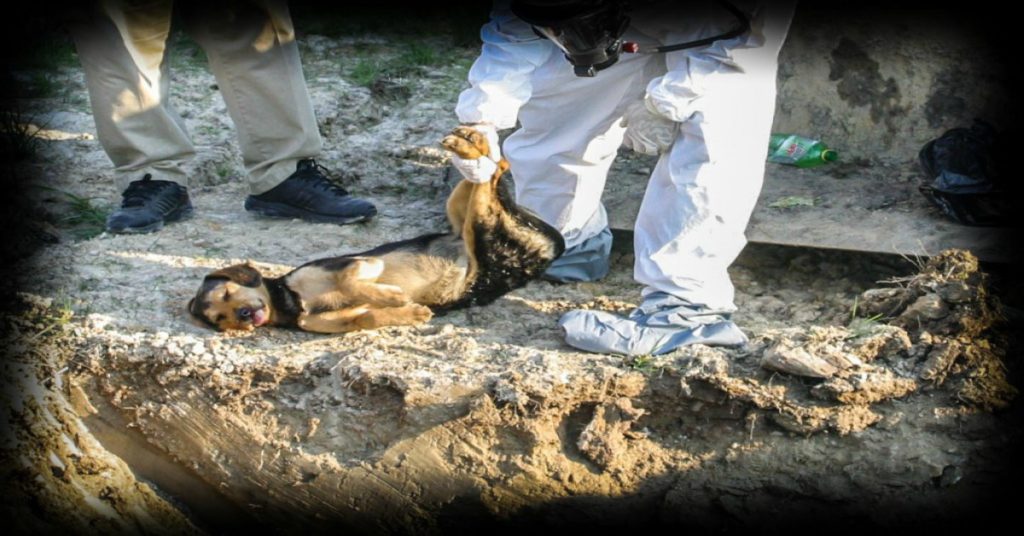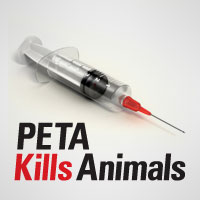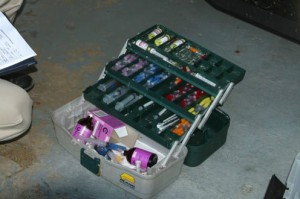Are Your Kids Getting PETA Propaganda in School?
Comments Off on Are Your Kids Getting PETA Propaganda in School?The activists behind PETA have made it clear: From Holocaust comparisons to nude demonstrations, they will go to extremes to push their agenda. So it should concern every parent that PETA has campaigns targeting children of all ages.
PETA has been targeting children with harmful and inappropriate messaging for years. In the past, PETA has used body shaming to convert kids to vegan diets, including a “Tubby Tammy” trading card that told children she could “barely button her pants” because she ate chicken. PETA has also developed a sexually suggestive video game for children called “breasts or bunnies.”
PETA received blowback in the past for these campaigns, but that hasn’t slowed the organization down. Here are the four ways PETA continues to target minors today.
Students Opposing Speciesism
SOS is a “PETA-backed revolt against human supremacy for students ages 13 to 24.” The organization aims at recruiting children in high school and college to participate in activism and demonstrations on PETA’s behalf.
SOS has many campaigns taking place in schools throughout the country. One campaign is aimed at getting schools to stop dissection lessons on frogs and instead practice dissection on toys. Another campaign is aimed at demanding vegan school lunches in cafeterias. PETA staff also offer to host virtual lessons directly in classrooms.
PETA has many incentives for students to join SOS. They provide “Anti-Speciesism Starter Packs” for students to distribute at schools. They also offer “one-on-one help or an interview” to help students with their homework.
SOS currently has several ongoing campaigns. One encouraged students to protest inside Starbucks to encourage the company to stop charging more for milk alternatives. (Arrests have been common at several recent Starbucks protests.) Another campaign urges students to confront their peers who are members of FFA to discourage animal agriculture, writing, “The only way to ensure that animals aren’t subjected to acts of violence in schools is by not having them on campus to begin with. If you’re a member of FFA or another animal agriculture program, please quit, go vegan, and speak out against speciesism.”
PETA Kids
PETA Kids is targeted at children under the age of 13. The website has information for both children and parents on how to be activists.
Children are incentivized to plan and carry out 12 different activism goals to obtain a PETA Kids membership card. PETA Kids is more about indoctrination than activism and a lot of the materials are more subtle than the arguments made at SOS.
PETA Kids has a YouTube channel with nearly 16,000 subscribers. Many of the videos feature celebrities urging children to “speak up” for animal rights or to become vegan. Other video playlists include “captivity kills,” “adopt, don’t buy,” and “cool animal facts.”
The PETA Kids website also hosts several video games that have suggestive themes, including “Peta’s Pokemon, Gotta Free ‘Em All” and “Butcher Goes Vegan.”
In addition to directly targeting kids, the PETA Kids website also hosts resources for parents. The website includes information about how to cook kid-friendly vegan meals and how to spot “red flags” in the classroom curriculum. It also has a blog on how petting zoos give the “wrong lessons about consent.”
PETA Little Kids
PETA Little Kids is aimed at even younger children, including those in pre-K. Much of the content is focused on activities with subtle PETA messaging, including coloring book pages and songs. One arts and crafts activity includes making a Christmas ornament of a pig that reads “I’m not meat.”
Additionally, PETA Little Kids features remixed nursery rhymes to change the words into pro-PETA messages. A few examples include: “Bah Bah Black sheep, can I have your wool. No sir, no sir, that’s not cool.” and “Three blind mice, three blind mice. See how they run. See how they run. They all ran after the farmer’s wife. They told her ‘thank you’ for saving their life.” and “Pop goes the bubble” instead of Pop goes the weasel.
Teach Kind
Unlike the previous three groups, Teach Kind goes after children through a third party: teachers. The program provides educators with a curriculum to teach children about PETA’s principles – no matter which grade they teach. PETA has developed lesson plans for students as young as pre-Kindergarten and as old as grade 12. Many of the lessons involve watching PETA-approved documentaries, such as Seaspiracy, to turn children against animal agriculture.
The lessons also include many other divisive themes beyond PETA’s animal rhetoric. One lesson is titled “environmental racism in the meat industry.“
As if there was any doubt as to how biased these lessons are, PETA included “debate and persuasive argument” lessons which only include the pro-animal-rights side of the debate.
Each year, PETA recognizes “Teachers of the Year” for “continuing to teach young people to respect and be kind to all sentient beings—no matter their species.” Previous winners have been lauded for using PETA’s curriculum in the classroom. One teacher had his students compete in a “compassion challenge” which ranked students on how much of a vegan diet they would vow to maintain, starting with recognizing Meatless Mondays and ending with full veganism.
PETA officials have claimed feeding children nutritious meat is “child abuse.” They’ve also stated: “We’re at war, and we’ll do what we need to win.”
You may not want your children to hear this extreme rhetoric, but PETA certainly does. Parents should be aware that PETA is working to groom the next generations of radical activists. Make sure your child isn’t one of them.



 PETA has really stepped in it. The organization is facing calls to be banned from India after its advocacy to shut down Jallikattu, a tradition in southern India. People have taken to the streets to protest PETA—both in India and in Norfolk, Va., where PETA’s headquarters is located. (And where PETA
PETA has really stepped in it. The organization is facing calls to be banned from India after its advocacy to shut down Jallikattu, a tradition in southern India. People have taken to the streets to protest PETA—both in India and in Norfolk, Va., where PETA’s headquarters is located. (And where PETA 
 As we approach the end of 2016, charities across America will be passing the hat. As usual, people should do their homework and make sure they give to a group that will use their money as intended. That means cross the Humane Society of the United States (doesn’t run a single pet shelter) and PETA (wastes money on juvenile street theater) off your list if you’re a discerning donor.
As we approach the end of 2016, charities across America will be passing the hat. As usual, people should do their homework and make sure they give to a group that will use their money as intended. That means cross the Humane Society of the United States (doesn’t run a single pet shelter) and PETA (wastes money on juvenile street theater) off your list if you’re a discerning donor.